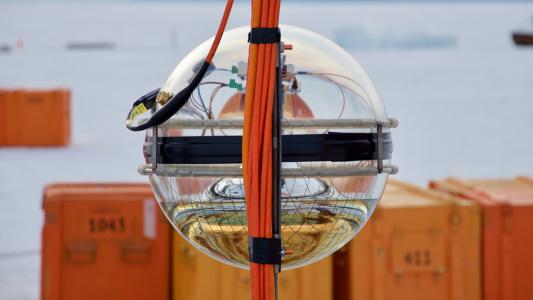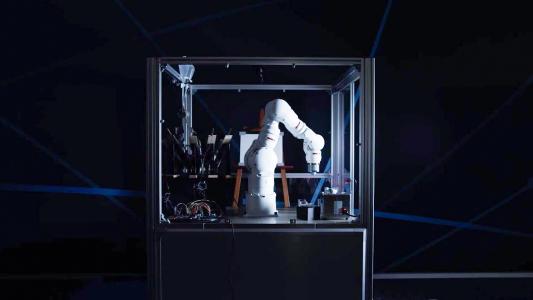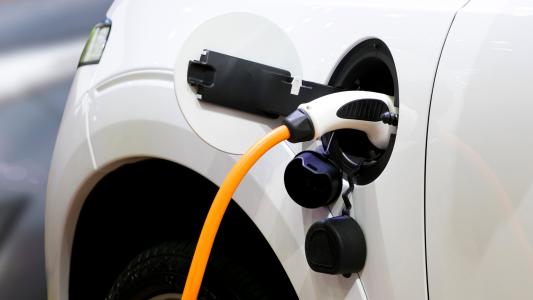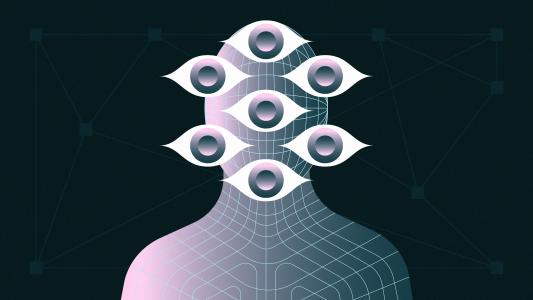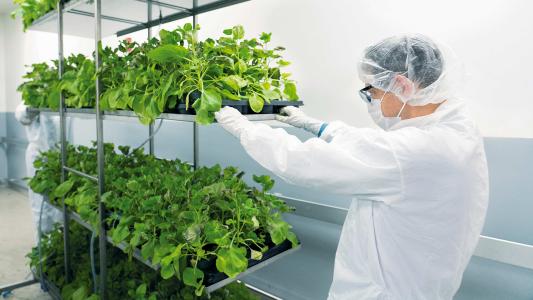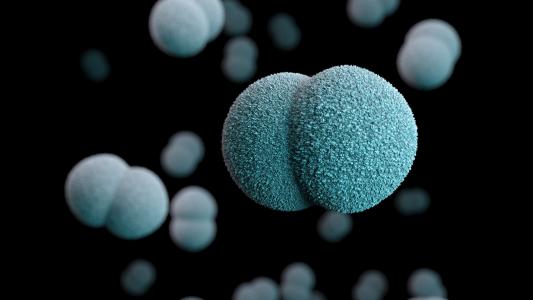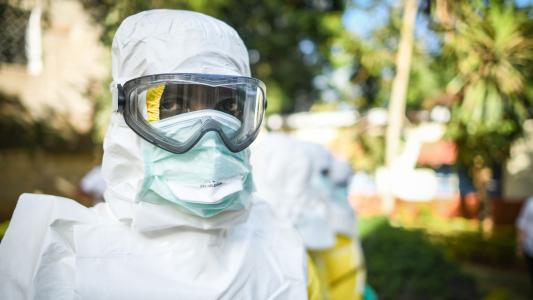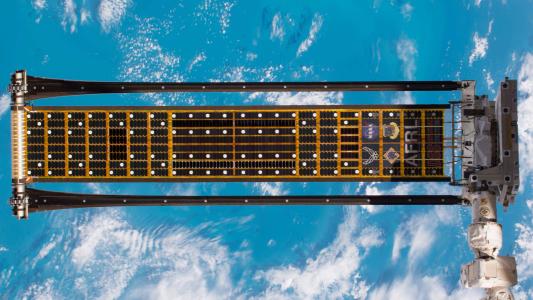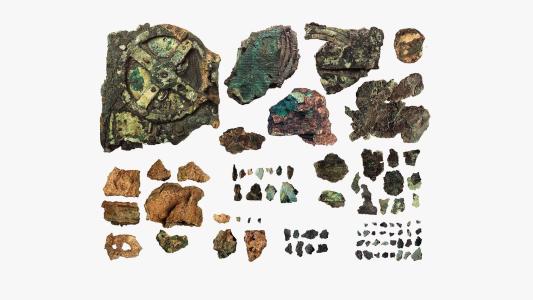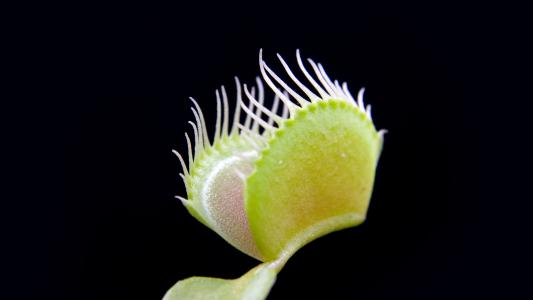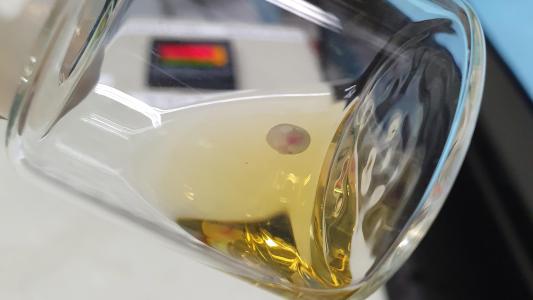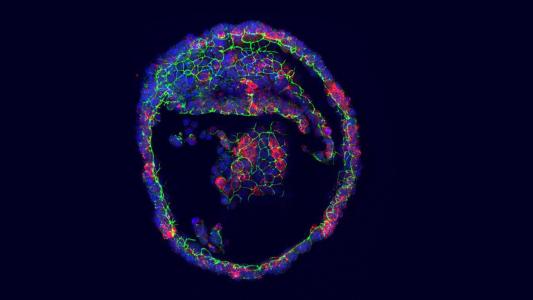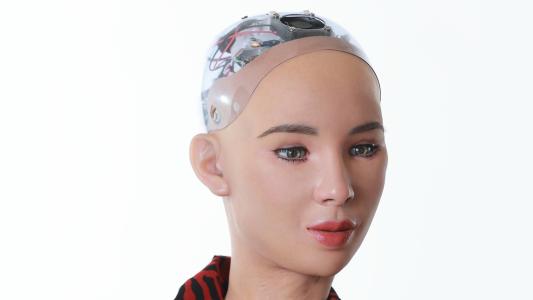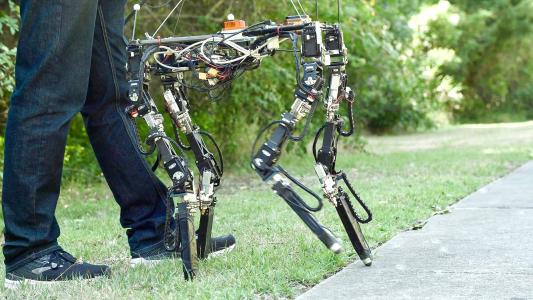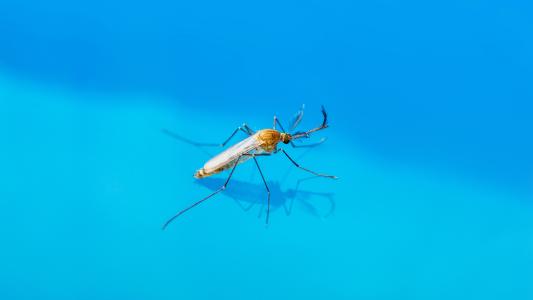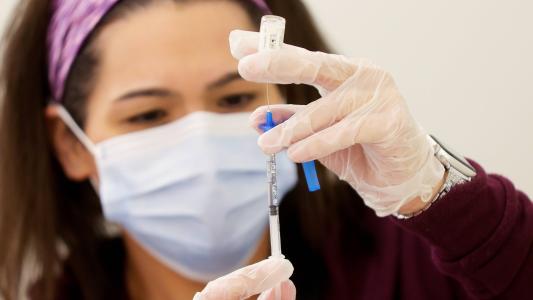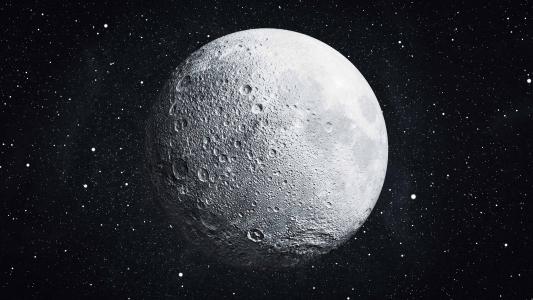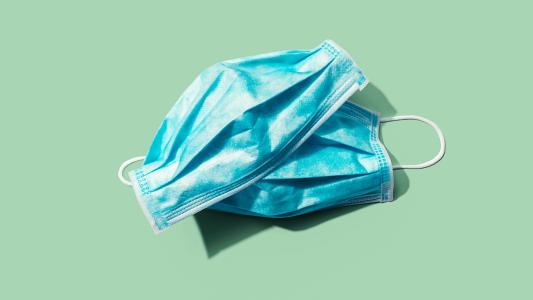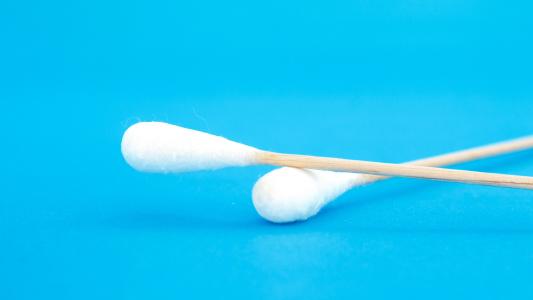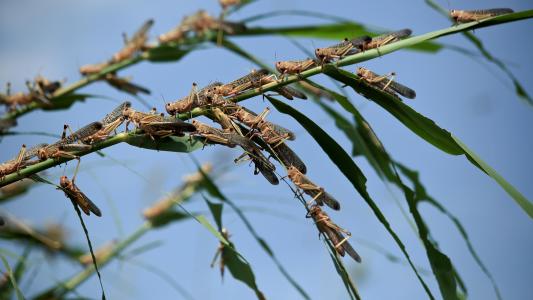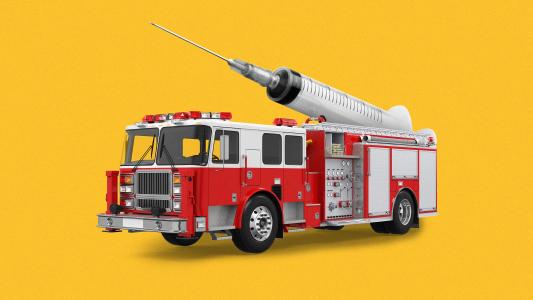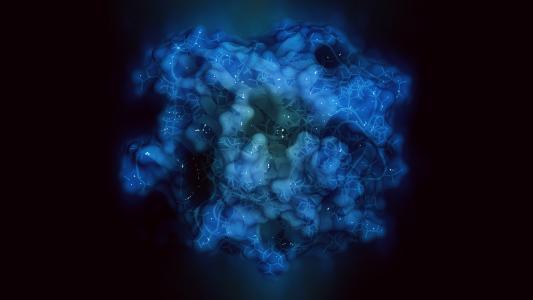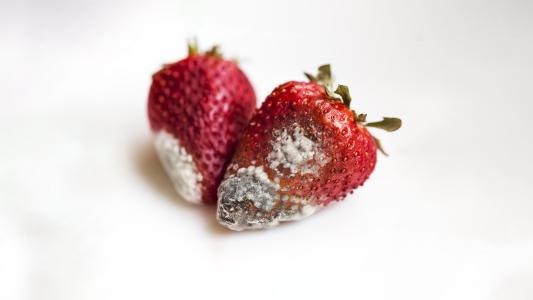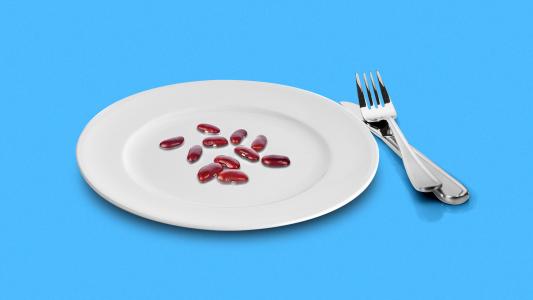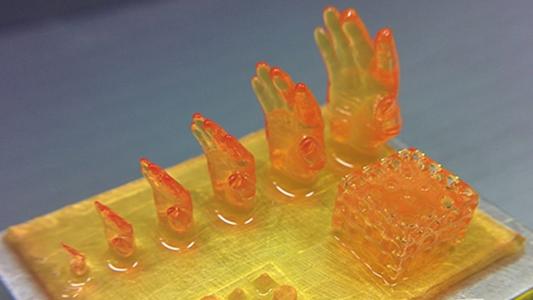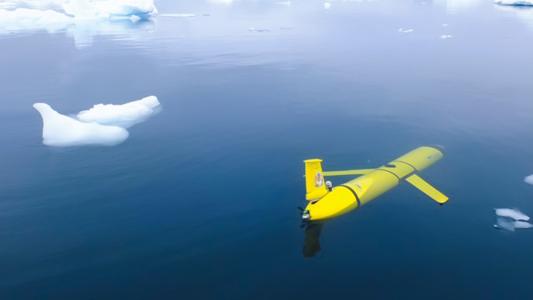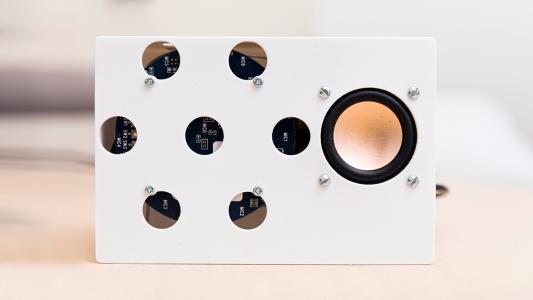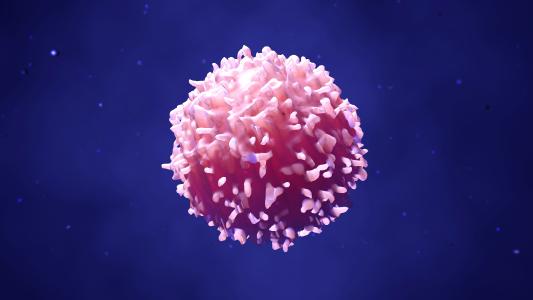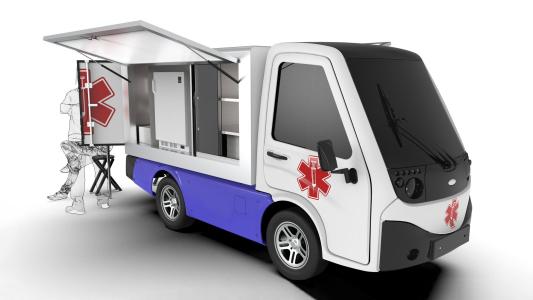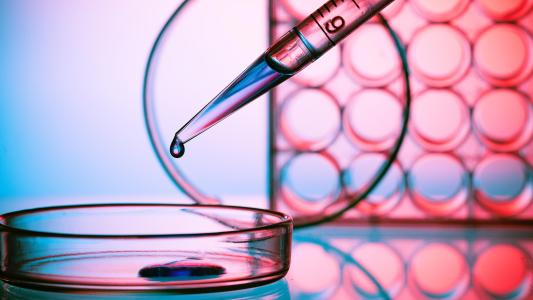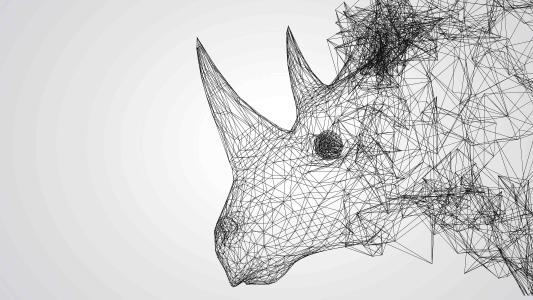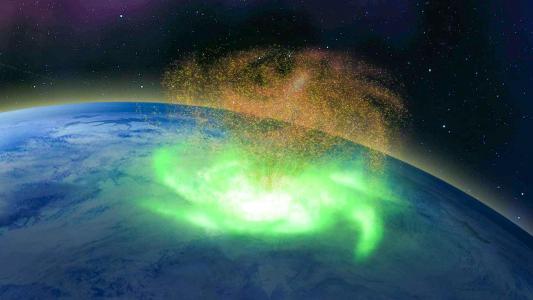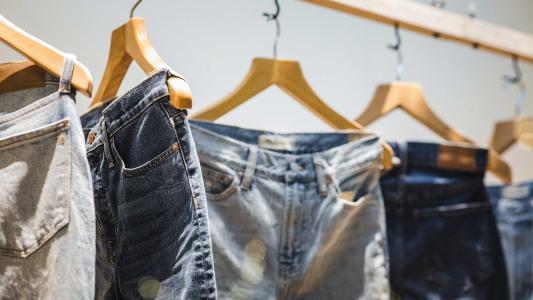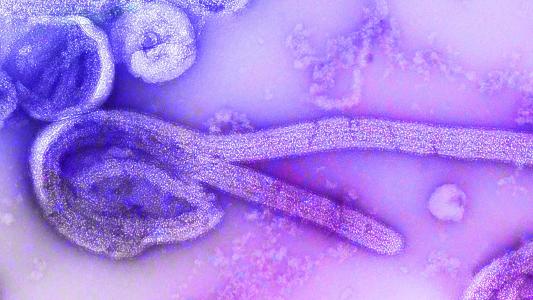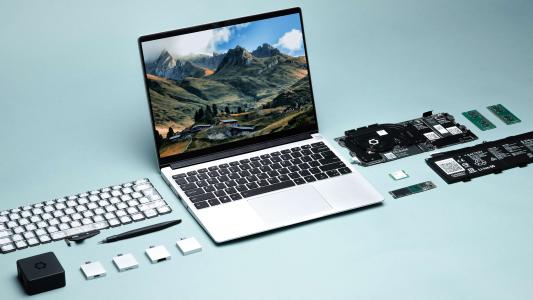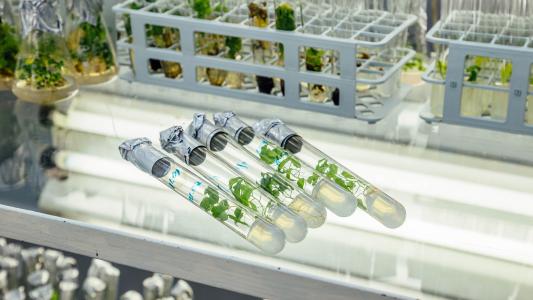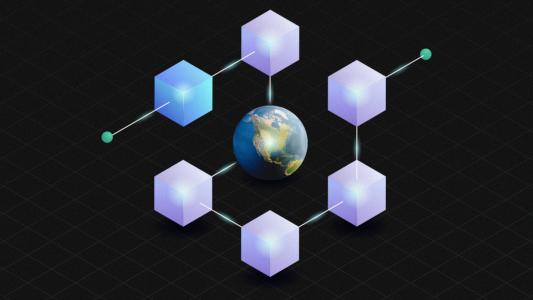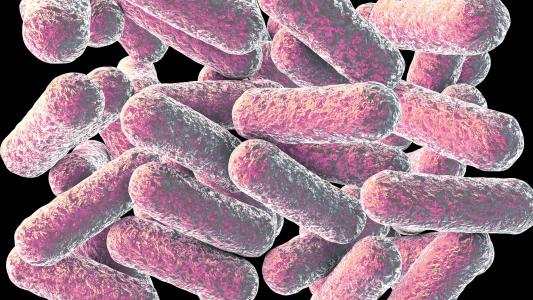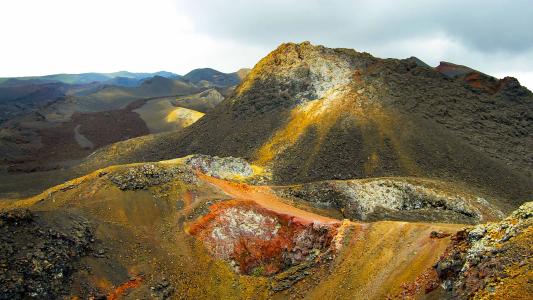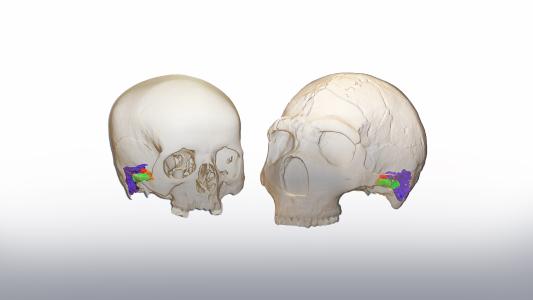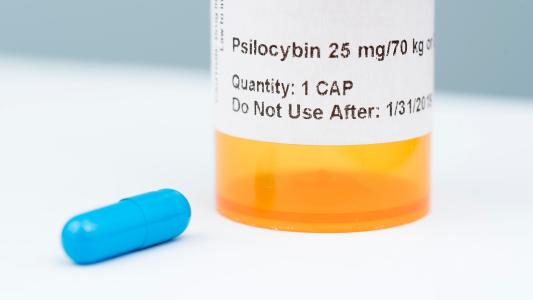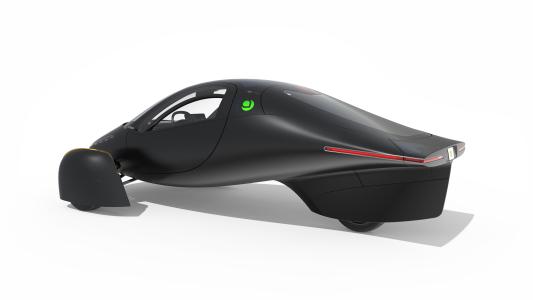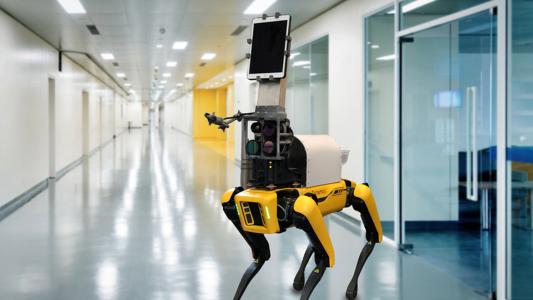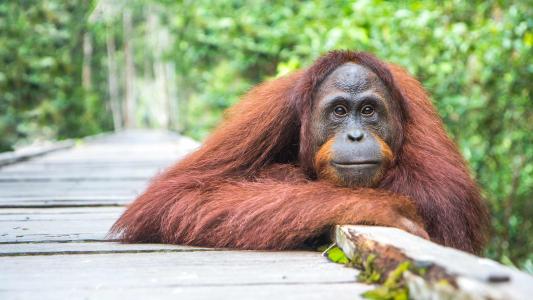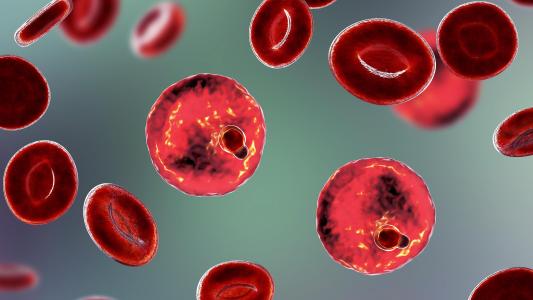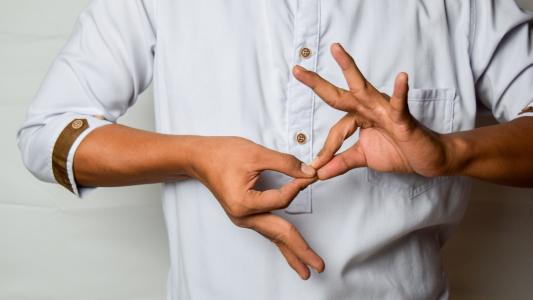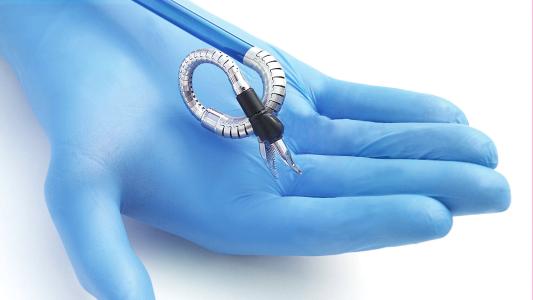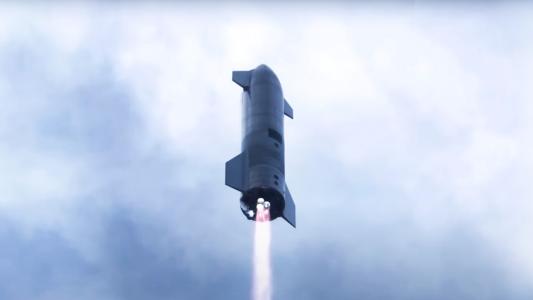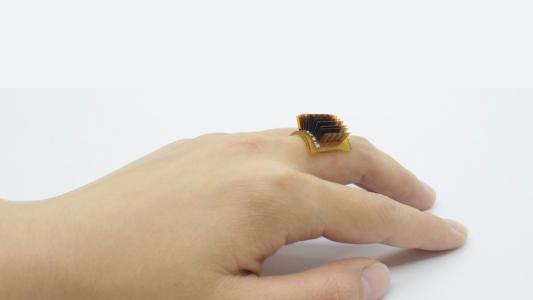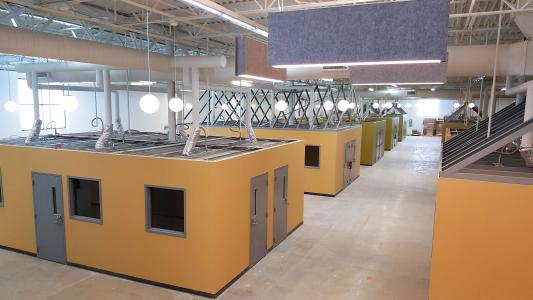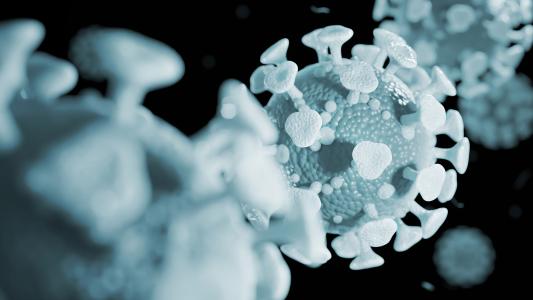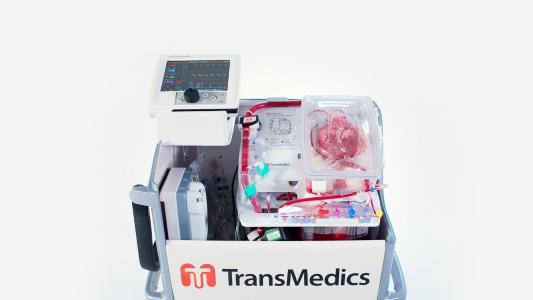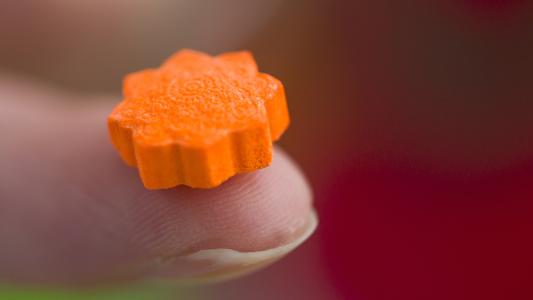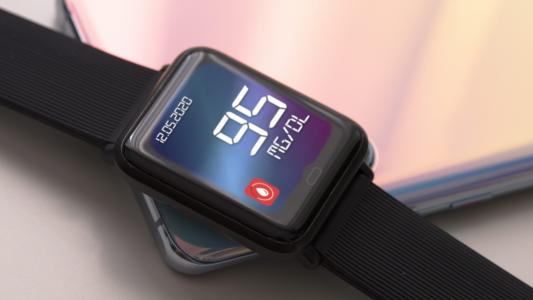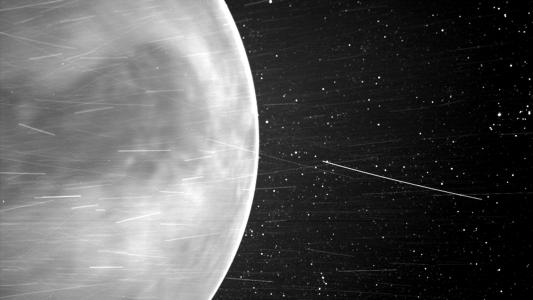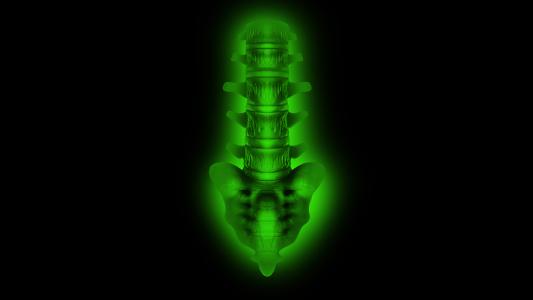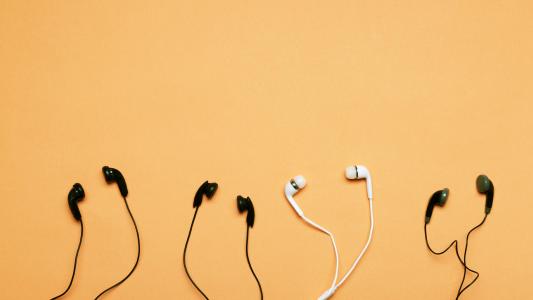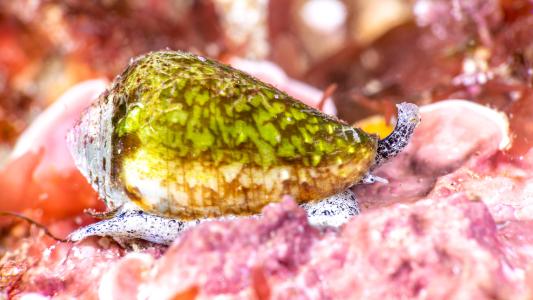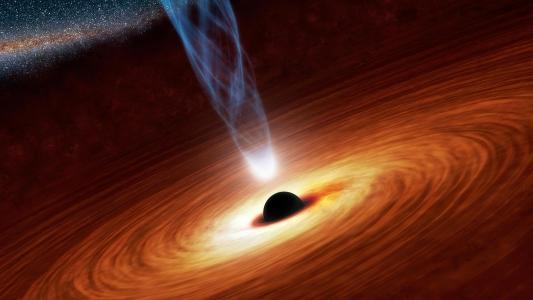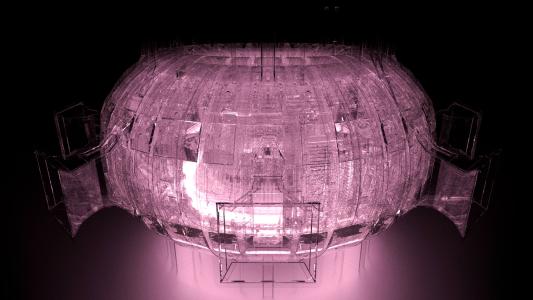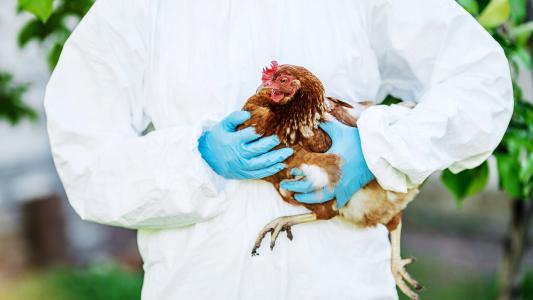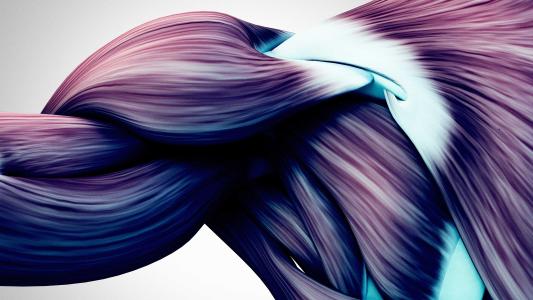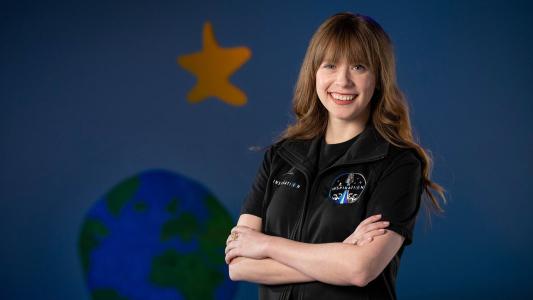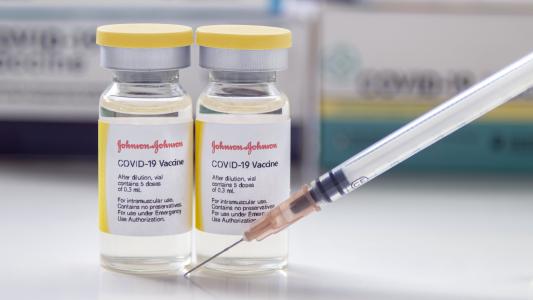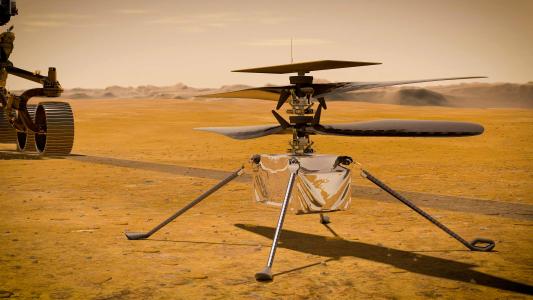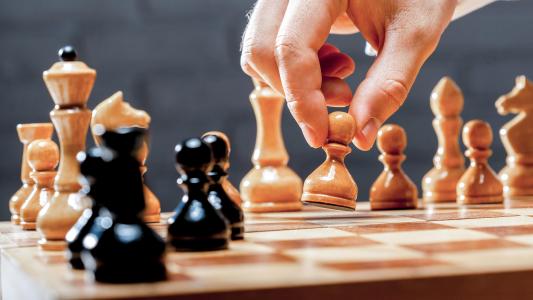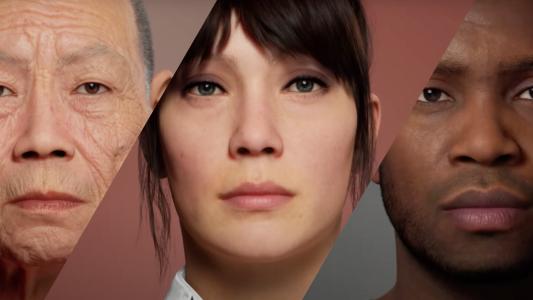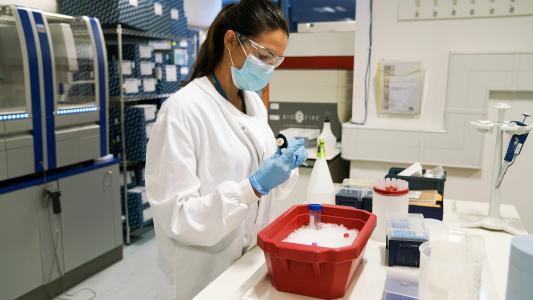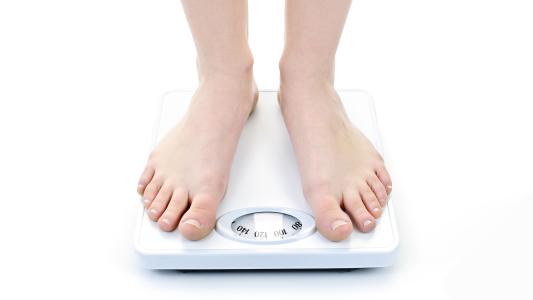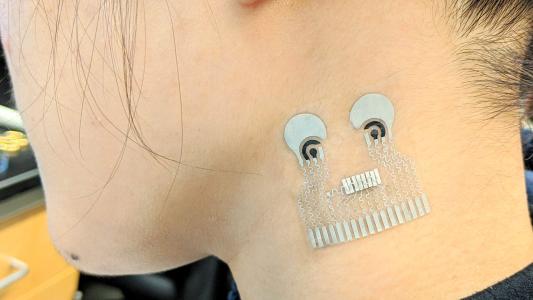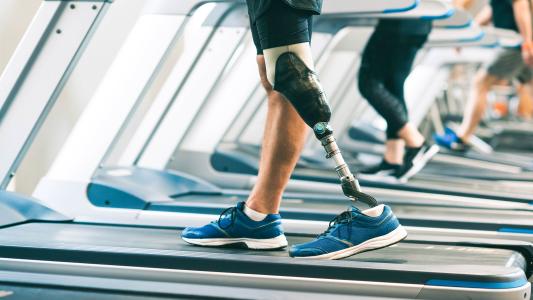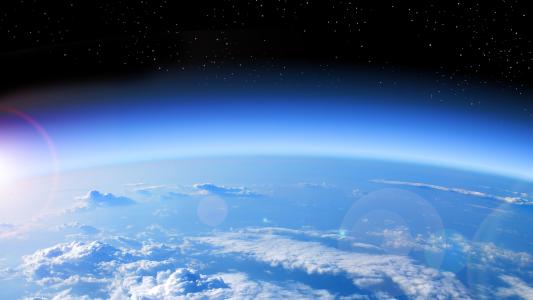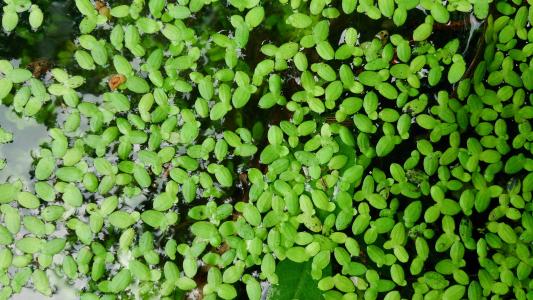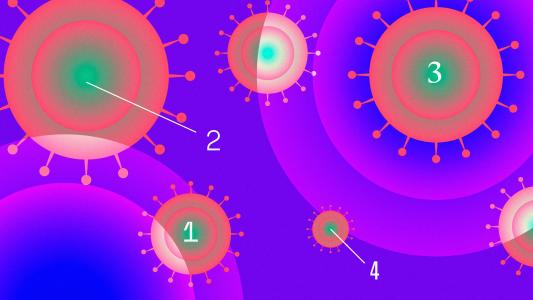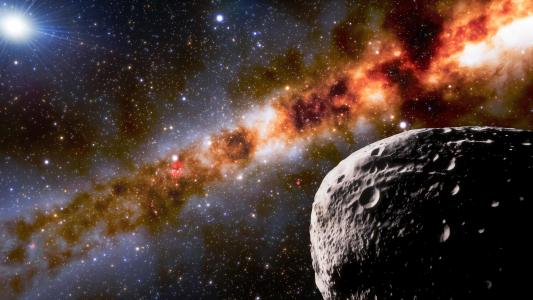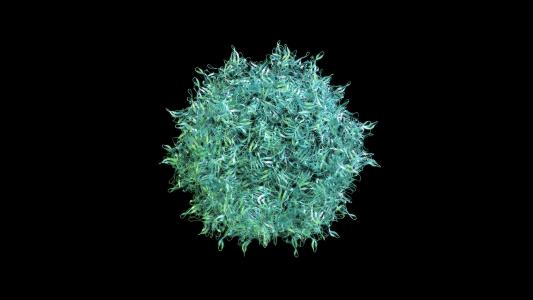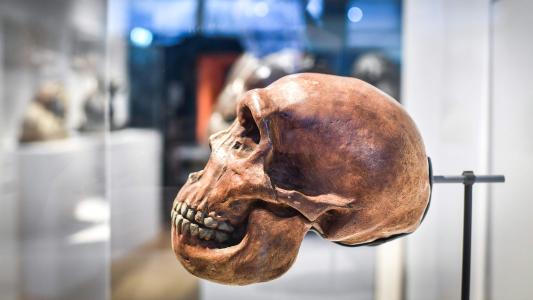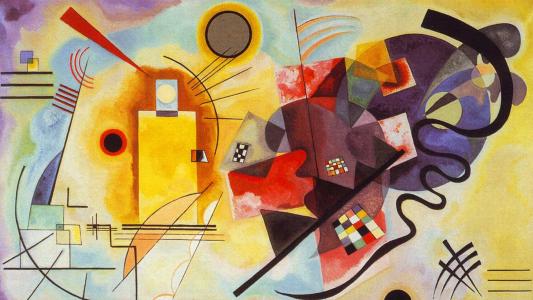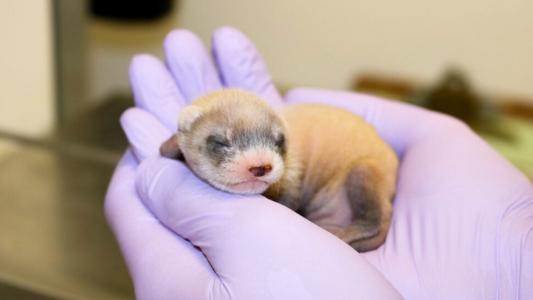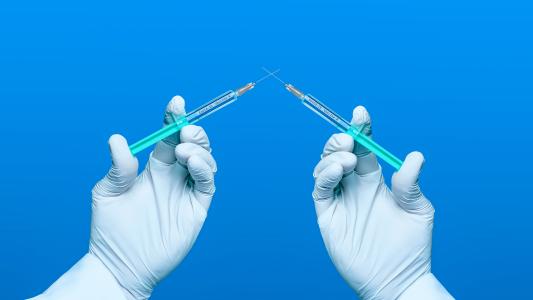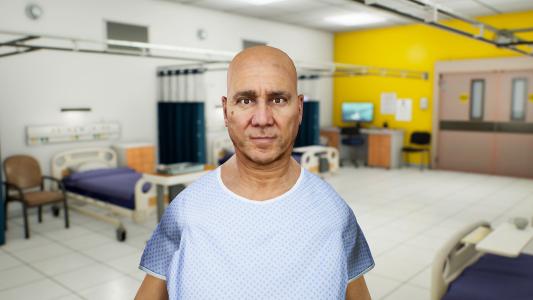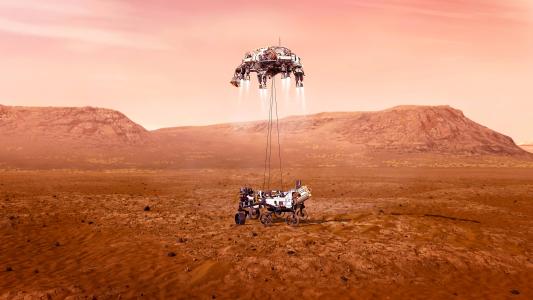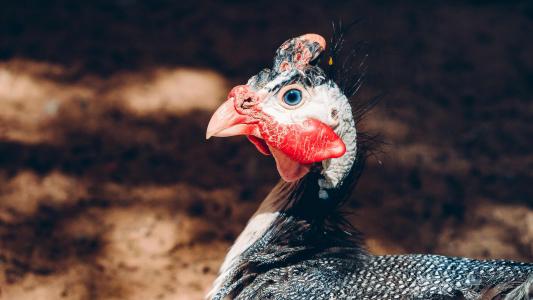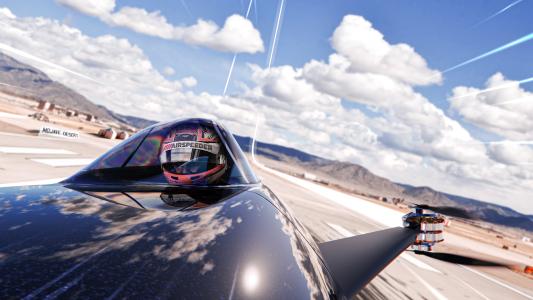New underwater telescope could explain birth of the universe
The world’s second-largest neutrino detector is now observing “ghost particles” from below the ice of Siberia’s Lake Baikal.
This startup can make a digital twin of anyone
In just a few minutes, Hour One can produce a digital twin of anyone, capturing their likeness, expressions, and voice.
Can weather modification save us from megadroughts?
Scientists predict that the western U.S. is entering the most severe "megadrought" on record. One weather modification solution is cloud seeding.
Watch Japan’s latest robot painter in action
For SXSW’s AI Painting Project, a robot arm was trained to generate paintings based on given concepts and using a limited number of brushstrokes.
A battery revolution could make electric cars a reality for everyone
We'll need a new type of battery to make electric cars cheaper and convenient.
How to spot a deepfake? It’s all in the eyes.
University at Buffalo researchers have created a tool capable of spotting deepfakes with 94% accuracy. The secret’s in the eyes.
How artificial intelligence won the America’s cup
Emirates Team New Zealand designed one of the fastest America's Cup boats with the help of artificial intelligence.
A plant-based COVID vaccine is going into arms
A COVID-19 vaccine grown in plants is beginning phase 3 clinical trials.
Scientists brought to life 100-million-year-old bacteria
Researchers successfully resuscitated bacteria from the South Pacific Gyre that were buried under marine snow for 100 million years.
Virus hidden in human for years may have caused new ebola outbreak
A genetic report shows that a survivor of the 2014-2016 Ebola outbreak in Guinea is likely to have begun the latest episode.
Solar panels in space could beam continuous energy back to earth
Capturing the sun's boundless light in space could revolutionize how we distribute energy around the world.
Ancient computer found in shipwreck decoded by scientists
A new model explains how an ancient computer known as the Antikythera Mechanism could have made complex astronomical predictions.
Researchers have developed a “plant communication” device
Plants emit weak electric signals. Researchers have developed a device to read and send signals back — a type of “plant communication.”
Researchers have grown a mouse embryo in a bottle
Researchers have grown a mouse embryo outside the uterus for longer than ever before, opening up the door to learning more about how mammals grow.
Scientists grow tear gland organoids that can actually cry
Researchers have grown tear gland organoids that can actually cry, a potential breakthrough in the treatment of dry eye disease.
Sophia the Robot joins NFT frenzy
Sophia the robot has created digital art that will be linked to an NFT and sold — making her the latest to join the art world’s current craze.
Quadruped robot can break a leg and keep going
Dyret is a shape-shifting quadruped robot that can change the length of its legs. This helps it walk across different terrains or account for any injuries.
One mosquito protein weakens several deadly flaviviruses
A mosquito protein that targets the viral envelope of flaviviruses, inhibiting their activity, could help doctors treat several life-threatening diseases.
Facebook’s vaccine hunters are helping Americans get vaccinated
COVID-19 shots are here, but making an appointment can be a pain. Vaccine hunters are playing matchmaker on Facebook to get jabs into arms.
Russia and China plan to put humans on lunar space station
Russia and China have agreed to collaborate on a lunar space station where humans might one day live and work.
US will spend $1 billion studying long COVID
The U.S. is dedicating $1.15 billion to studying long COVID, a condition in which survivors experience long-term effects of COVID-19.
Nurse’s smelling “superpower” leads to skin swab test for Parkinson’s
Researchers developed a skin swab test for Parkinson’s after studying a woman’s strange ability to smell the disease.
This Kenyan startup is turning locust swarms into animal feed
The locust swarms in East Africa are destroying crops, but The Bug Picture plans to transform them into profits.
Texas firefighters deliver COVID-19 vaccines to seniors
Firefighters in Corpus Christi are delivering COVID-19 vaccines to homebound seniors.
MIT’s new AI can make holograms in real-time
MIT trained an AI to generate photorealistic holograms in milliseconds using just the processing power of a smartphone.
New drugs are taking the fight to lung cancer
KRAS mutation, which causes tumors to form, was long considered “undruggable.” But new drugs could be approved by year’s end.
Plants make their own mini weapon launchers to fight off fungus
Scientists engineered plants to stop fungus that causes grey mold. This could lead to natural fungicides that protect food crops without toxins.
SpaceX targets moving vehicles with Starlink satellite internet
SpaceX has asked the FCC for permission to attach terminals for its Starlink satellite internet to larger vehicles, such as trucks, airplanes, and boats.
Austin is facing food insecurity. This student is on a mission to solve that.
In partnership with Ford
A med student thinks the key to reducing food insecurity is through transportation. He launched Good Apple, a healthy food delivery service for families in need.
Doctors can now see the lungs of a newborn breathing
There’s a lot about newborn breathing doctors don’t know, but a new imaging technique that can record a baby’s first breaths is pulling back the curtain.
New method for making 3D printed organs is 50 times faster
A new technique for making 3D printed organs uses hydrogels and light to print at speeds 50 times faster than conventional methods.
Underwater gliders could soon run off of the ocean’s changing temperatures
California company Seatrec wants to bring their temperature-harnessing generator technology to underwater gliders.
New AI tool checks up on ocean health from space
Researchers have developed a machine-learning platform that can rapidly process ocean color from satellite images — giving data on ocean health.
New AI turns a smart speaker into a heart rhythm monitor
University of Washington researchers have transformed a smart speaker into a contactless heart rhythm monitor.
New test can show if you’ve had COVID-19, even if antibodies fade
The FDA has approved a T cell test for COVID, a first-of-its-kind assay that looks to the immune system’s memory.
Vaccine delivery truck brings COVID-19 shots right to you
Startup AYRO’s all-electric vaccine delivery truck could bring COVID-19 vaccines to people without access to reliable transportation.
New gene therapy for chronic pain could replace opioids
Researchers have engineered a gene therapy system to dampen pain. They've shown it to be effective in mice, for both short-term and long-term pain.
Now you can save endangered species — just by playing games
A new smartphone game will allow players to adopt an endangered animal in the digital world while simultaneously protecting one in the real world.
Space hurricane rains electrons down on North Pole
A space hurricane formed above the North Pole in 2014, marking the first discovery of the theorized — but never proven — extreme space weather event.
A sweet way to recycle cotton — turn it into sugar
What’s better than recycled cotton — transforming it to sugar for reuse. Researchers have a recipe for success.
Existing chemo drugs could offer a potential Ebola treatment
Capable of causing highly lethal disease, Ebola treatment is a public health priority. A new study shows chemo drugs may do just that.
An easy-to-repair modular laptop is launching this summer
Framework has announced a new modular laptop that’s easy to repair and upgrade, which could make it last twice as long as the average laptop.
Should we genetically engineer carbon-hungry trees?
Genetically modified trees that are designed to grow faster and store more carbon could help reverse climate change.
NFTs and crypto art, explained
NFTs are creating a marketplace for digital content. It may be a huge opportunity for digital creators to sell their own work.
Duke scientists find a potential vaccine for UTI
Despite being common, painful, and persistent, there’s currently no vaccine treatment for UTIs. But a new method has shown promise in mice.
NFL hopefuls train with sensor-free athlete tracking tech
Intel’s new athlete tracking platform, 3DAT, can deliver performance insights without the use of potentially cumbersome sensors.
How to deepfake your grandparents' old photos
A new deepfake tool called Deep Nostalgia generates brief animations of faces in still photographs, breathing life into people’s old family portraits.
Spectacular volcano eruption in Galapagos could lead to early warning system
Scientists used seismic monitors to record motion data of a volcano eruption, which could be used to understand early warning signals for a pending eruption.
Neanderthals had the capacity for human communication
Neanderthals appear to have had the capacity to hear verbal language, suggesting that modern human communication has ancient roots.
NYU is launching a center for psychedelic medicine
NYU’s Center for Psychedelic Medicine will serve as the nexus for the school’s psychedelic research, as well as provide training to budding researchers.
This mass-produced solar car costs just $25,900
The Aptera solar car is expected to hit roads in 2021, but even if it's not the next big thing in transportation, its design elements could be.
MIT turned a robo-dog into a robot doctor
MIT converted a robo-dog built by Boston Dynamics into a robot doctor and then asked patients how they felt being treated by it.
Great apes get vaccinated against COVID-19
Great apes, our closest living relatives, are susceptible to COVID-19. The San Diego Zoo has given some an experimental vaccine to protect them.
Can RNA create a malaria vaccine?
An effective malaria vaccine could save hundreds of thousands of lives each year. Can RNA vaccines like the ones fighting SARs-CoV-2 tackle another disease?
The pandemic is forcing sign language to evolve
Sign language users are adapting to the limitations of video conferencing platforms, which have become more popular due to the pandemic.
Surgery robot could make hysterectomies less painful
The FDA has approved its first surgery robot for use during a vaginal hysterectomy, which is less invasive than the abdominal approach.
SpaceX Starship SN10 lands successfully — then blows up
SpaceX Starship SN10 successfully landed after a high-altitude test launch — a first for one of the massive rockets — but it blew up a few minutes later.
Tom Cruise deepfake is the work of a pro VFX artist
The Tom Cruise deepfake featured in a series of TikToks that went viral was created by a professional VFX artist.
A new device can use your body heat to increase battery life
Researchers have developed a low-cost wearable device that can turn body heat into energy — improving battery life for your essential devices.
A tiny house village for the homeless is coming to Minnesota
This tiny house village for homeless people is designed to overcome traditional shelters' limitations and help residents stay safe during the pandemic.
Researchers have discovered how SARS-CoV-2 is mutating
SARS-CoV-2 mutations, which cause new variants of the virus, are eluding the virus’s proofreader. New research shows why.
“Heart in a box” gives 6 kids second chance at life
For the first time, TransMedics’ “heart in a box” machine has been used to help children in need of heart transplants, with great success.
First-of-its-kind pilot study uses MDMA for alcohol addiction
A small, first-of-its-kind study has piloted the use of MDMA for alcohol addiction therapy.
Smartphones can track your blood sugar levels
The ability to easily monitor blood sugar levels would allow everyone to have more control over their own metabolic health — not just people with diabetes.
Solar probe snaps surprising photo of the surface of Venus
The Parker Solar Probe has taken an image of the surface of Venus that may change what we thought we knew about the planet — or possibly the probe itself.
Radioactive bone cement may help treat spinal tumors
External radiation can damage bones and cause side effects. Radioactive bone cement directly into the spine may be a better option.
Your guide to the Clubhouse app and how to get an invite
The Clubhouse app is surging in popularity. Here’s what you need to know about the audio-focused social networking platform.
Cone snail venom may help treat malaria
Clumps of infected red blood cells can make malaria dangerous even after its parasite is treated. Cone snail venom may one day help.
See 25,000 supermassive black holes in one map of the sky
Astronomers used supercomputers and an international network of antennas to create a map of 25,000 supermassive black holes.
Fuel tests to begin for world’s largest fusion reactor
At the JET nuclear fusion reactor, scientists are testing a fuel that could power a $25 billion nuclear fusion device.
A new bird flu is infecting people. Here’s what we know.
The H5N8 bird flu virus has reportedly infected seven poultry farm workers in Russia. Here’s what we know about the new avian flu threat.
After 360,000 years, extinct cave bear's DNA is still readable
Scientists have sequenced the DNA from the ear bone of an ancient cave bear, an extinct relative of the polar and brown bears.
Soft robots could get stronger by pumping iron
Soft robots could get more muscular with a new soft gel that becomes tougher when subjected to vibration.
Futuristic city will be a testbed for robots & autonomous cars
Toyota has broken ground on Woven City, a futuristic city prototype where the technologies of tomorrow can be tested en masse.
Cancer survivor joins first all-citizen private spaceflight
The crew aboard the first all-citizen private spaceflight, Inspiration4, includes a billionaire, a childhood cancer survivor, and maybe you.
FDA: One-shot COVID-19 vaccine is safe and effective
FDA experts confirm that Johnson and Johnson’s one-shot COVID-19 vaccine is safe and effective, putting it a step closer to authorization.
NASA’s Mars helicopter phoned home. Here’s what’s next.
NASA’s Mars helicopter Ingenuity has survived the journey to the Red Planet. Here’s what’s next for the first-of-its-kind aircraft.
Meet the chess AI you might actually beat
Maia is a chess AI designed to play like you, not crush you. Predicting the most human decisions may pave the way for AI to train and work with us.
Metahuman lets you create photorealistic, animated digital humans
Epic has released a new character creation tool in Unreal Engine, called MetaHuman Creator, that helps you render an almost endless selection of near-photorealistic digital people.
Targeted wetland restoration efforts could cut nitrogen pollution in half
Researchers used computer models to evaluate wetland restoration scenarios and found that strategic wetland placement is the key to cleaning up water pollution.
World’s first COVID-19 human challenge study is a go
Researchers have gotten the green light to deliberately infect people with the coronavirus as part of the world’s first COVID-19 human challenge study.
Massive green hydrogen projects are underway
Large-scale ventures are a big step toward testing whether we can create a marketplace for green hydrogen in a way that makes economic sense.
Diabetes drug shows promise as obesity treatment
The diabetes drug semaglutide shows promise as an obesity treatment, helping people lose an average of 34 pounds in a recent trial.
Stamp-sized wearable health monitor can do it all
Researchers at UCSD have developed a wearable health monitor that can measure both cardiovascular and biochemical signals at once.
New amputation surgery technique may lead to better control of prosthetics
A new amputation surgery technique developed at MIT reconnects muscle pairings and may lead to better prosthetic control — and less pain.
Light-driven levitation could lift probes to the edge of space
A new light-driven levitation technique can lift objects large enough to carry sensors to the understudied mesosphere near the edge of space.
The world’s fastest-growing plant could help solve food scarcity and climate change
Scientists have uncovered the genetic underpinnings of the duckweed, the fastest growing plant, and it could help optimize future crops.
New intelligent material could become a “quantum brain”
Scientists created an intelligent material that acts as a brain by physically changing when it learns. This is an important step toward achieving a "quantum brain.”
The hunt for a universal coronavirus vaccine
A universal coronavirus vaccine that protects against multiple coronaviruses could stop the next potential pandemic from ever starting.
This planetoid is officially the farthest known object in our solar system
A planetoid nicknamed Farfarout is officially the most distant known object in our solar system — but its reign might not last for long.
A virus invisibility cloak makes AAV gene therapy safer
Researchers have figured out a way to cloak the AVV so it can sneak past the human immune system and deliver its gene therapy payload undetected.
Scientists use CRISPR to create neanderthal mini-brains in a lab
Scientists modified brain tissue from modern humans to carry a gene that once belonged to Neanderthals.
New Google tool lets you experience synesthesia
Google’s new online tool lets you experience synesthesia like the abstract artist Vasily Kandinsky, who could hear colors and see sounds.
Black-footed ferret is first cloned US endangered species
A black-footed ferret clone could inject a much-needed dose of genetic diversity into her species, which is on the brink of extinction.
Study: Strong immunity without Pfizer vaccine’s second dose
The Pfizer vaccine's second dose might not be as necessary as thought — and ultra-cold storage of the COVID-19 vaccine might not be necessary at all.
Virtual patients help doctors improve bedside manner
The Virti platform lets doctors and med students interact with computer-generated virtual patients so they can improve their bedside manner.
Perseverance’s Mars landing was a success
NASA’s Perseverance rover successfully executed its Mars landing, ending a seven-month journey — and kicking off an epic exploration mission.
NASA’s Perseverance Rover is mic’d up
Two microphones on the Mars rover, Perseverance, are designed to record audio during its EDL sequence and subsequent mission.
Gators and guineafowl may help us understand how dinosaurs moved
Using x-ray 3D-imaging techniques, researchers are turning to gators and guineafowl to better understand how dinosaurs moved.
Electric flying car races get the green flag
Airspeeder is bringing electric flying car racing to the skies in 2021.
